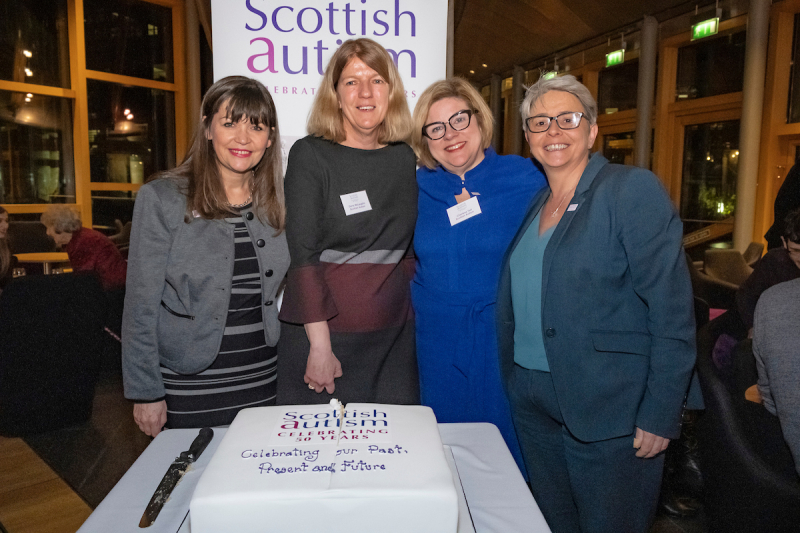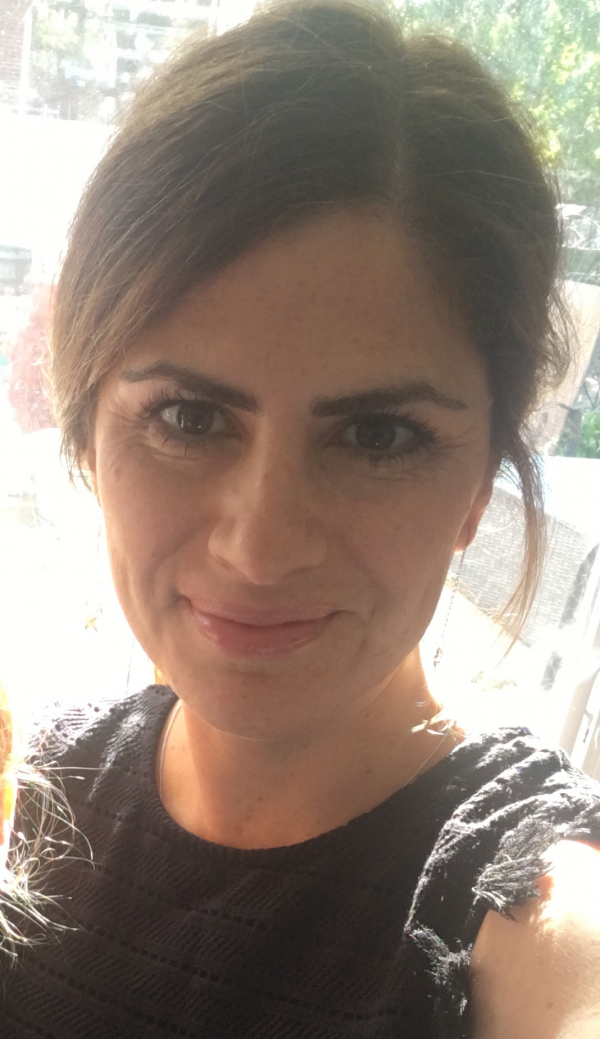Scottish Autism's 50th Anniversary - Scottish Parliamentary Reception
Alastair Clarkson, Researcher in Residence, Scottish Autism
Pictured (L-R): Clare Haughey, Scottish Minister for Mental Health, Dorry McLaughlin, Chief Executive, Charlene Tait, Deputy Chief Executive and Annie Wells MSP. Photo Credit: Tina Norris Photography
A 50th Birthday with Three Organisational Wishes from Scottish Autism Deputy Chief Executive, Charlene Tait
At the start of December, friends, founders, families, staff and supported autistic people were invited to the Scottish Parliament for a special reception to celebrate 50 years of service development and support within Scottish Autism. Speaking at the event, Deputy Chief Executive, Charlene Tait paid tribute to the founding group of parents that started the organisational journey in 1968. As a result of their pioneering work Scottish Autism has grown to become a learning organisation which aims to put the voice of supported autistic people at the heart of every service.
Describing the progress the organisation has made to change damaging narratives around autistic people, Charlene outlined how a Scottish Autism ‘capacity view’ of autistic people places a holistic focus on autistic strengths, happiness and wellbeing. Charlene reminded us that whilst the need to recognise the needs and challenges that autistic people face is important, in order to be truly ethical in our approach we must strive to recognise the limits of our own understanding when we support others.
In order to make this goal a reality Charlene identified 3 future ‘wishes’ which she believes can bring about a better future for the autistic community and those that support them.
“My first wish is that the services autistic people rely on for support focus on who people are, how they feel and not on how they behave. Challenging behaviour is human behaviour.1 When you feel well you behave well. If we problematise the autistic person we will tend towards practice models that do things to people rather than with them.
I am therefore wishing for support for innovative approaches that explore the concept that practice is relational, that stress is transactional and that focus first and foremost on happiness and wellbeing.”
“My second wish is that the social care work force and the people we support are considered worthy of investment. We need to elevate the societal status of the people we support and the staff who support them.
So as part of this wish I would like to see more recognition and resourcing of professional support and development for staff who support some of the most vulnerable and complex individuals in our society”
“My final wish is for an end to ‘shortermism’ in terms of funding and for systemic change that will put a stop to the endless ping pong between national and local government, who, regardless of position are tasked with ensuring the rights of citizens.
For my wish to come true we need to see real collaboration between the statutory and third sector to actively solve some of our challenges”.
In order to move towards these wishes, we are first required to firmly step outside of a ‘deficit model’ of autism. In the process, we are reminded of a most fundamental principle – only when we come to understand human differences are experienced through the interpersonal can we practice true equality in support and access the depth of value within our relationships.
1. Mills and McCreadie (2017). Knowing me – knowing me. Changing the story around stigma and ‘behaviours of concern’; promoting self-awareness, self-control and a positive narrative. Autism and Intellectual Disability in Adults Volume 2. Pavillion Press. 2017





